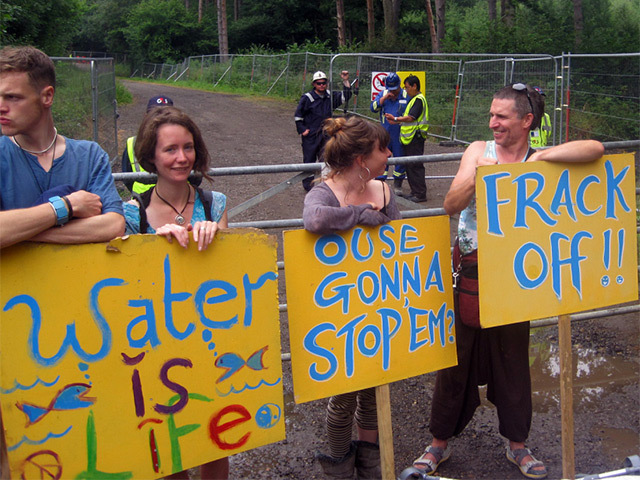
Concerns over fracking could “tip the balance” in some of the country’s most marginal seats in the next general election, campaigners have warned.
A dozen MPs with some of the slimmest majorities in 2010’s closely fought election could see controversial fracking for shale gas and oil in their constituencies, analysis has shown.
Prime Minister David Cameron this week indicated his backing for shale gas that can be exploited without harm to the environment, as the coalition aims to exploit a resource ministers hope will cut energy prices and boost the economy.
But signs of unease among some Conservative and Liberal Democrat MPs has emerged as test drilling in Balcombe, West Sussex, was met with protests by local people and environmentalists, although current operations do not involve fracking.
Opponents of fracking fear that the process of fracturing the shale rock with high pressure liquids made up of water and chemicals to release gas or oil could affect water supplies and cause minor earthquakes.
Concerns have also been raised about the impacts of noise and traffic associated with development, damage to the countryside and house prices, and that exploiting shale gas in the UK could hit efforts to cut carbon emissions.
Constituencies of 12 MPs with majorities of less than 1,000 in the 2010 election include areas which have been licensed for oil and gas exploration to companies that could use fracking to exploit the sites.
The seven Labour MPs, three Conservatives and two Liberal Democrats include Labour’s Julie Hilling in Bolton West, who won with a majority of just 92, and former minister John Denham, who holds Southampton Itchen with a majority of 192.
Potential shale resources have been identified in Nottinghamshire and a series of petroleum exploration licences have been granted in Tory Mark Spencer’s Sherwood constituency where he is defending a majority of 214.
Petroleum exploration licences have also been granted in the constituencies of Lib Dem Annette Brooke, who holds Mid Dorset and North Poole with a majority of 269, and Conservative MP Eric Ollerenshaw, who has a majority of 333 in Lancaster and Fleetwood, analysis by Greenpeace suggests.
In total 30 MPs in Lancashire, where the UK’s first fracking was suspended after two minor tremors, could see shale gas extraction in their constituencies.
It has also been revealed that 13 members of the Cabinet face potential fracking in their local area, including Chancellor George Osborne, Energy Secretary Ed Davey and Environment Secretary Owen Paterson, who has spoken out against wind farm developments in his constituency.
“The 2015 election will be closely fought and fracking protests like those we’re seeing in Balcombe could tip the balance in marginal seats.,” said Lawrence Carter, Greenpeace energy campaigner.
“People are clearly not prepared to take the disruption of their communities and countryside lying down. MPs of all stripes will be thinking twice before throwing their support behind fracking.”
Recommended for you
